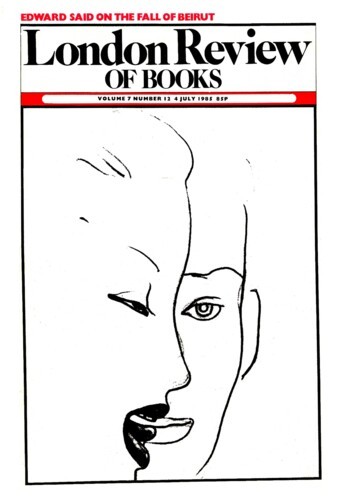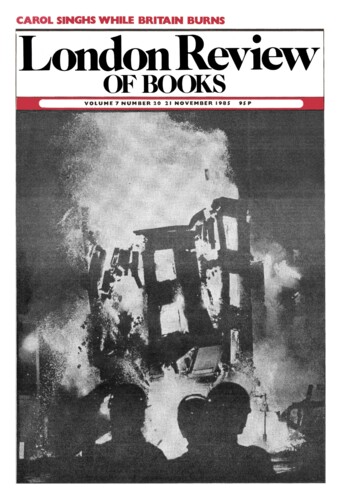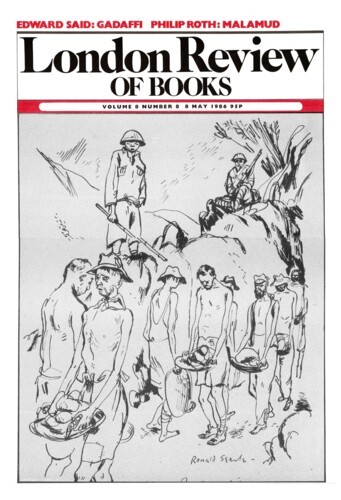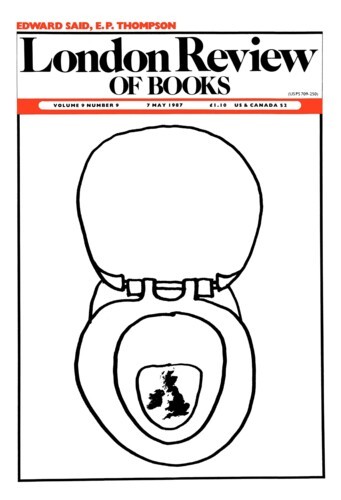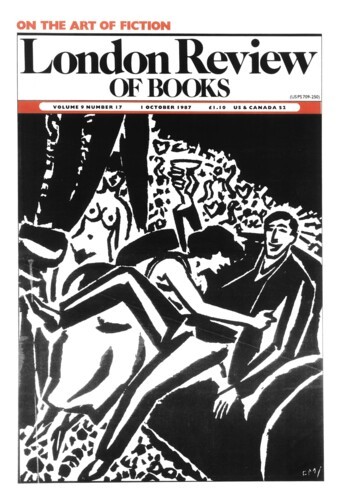Edward Said reflects on the fall of Beirut
Edward Said, 4 July 1985
I never thought that Beirut was the Middle Eastern Paris, nor that Lebanon was like Switzerland. This does not make the country’s present agonies any less horrible, or Beirut’s relentlessly detailed self-dismantling – much of it performed on prime-time television – any less unprecedented, and interminably, senselessly miserable to witness. The whole process has by now become a large-scale version of the Laurel and Hardy film of two men who vengefully destroy each other’s car and house piece by piece, tit-for-tat, and while they glower and puff through many ‘take thats’ the world around them gets wiped out. As the struggle for power and territory continues in Beirut, very little will be left of either when, and if, a final victor emerges. A close friend of mine who has lived through the entire ordeal told me last week over the phone from Beirut that quite apart from the bombing and mayhem, reading the epidemic of local newspapers would certainly drive anyone crazy: no two of them say the same thing, and trying to figure out what is happening or who is fighting whom for what reason is like catching clouds.’
